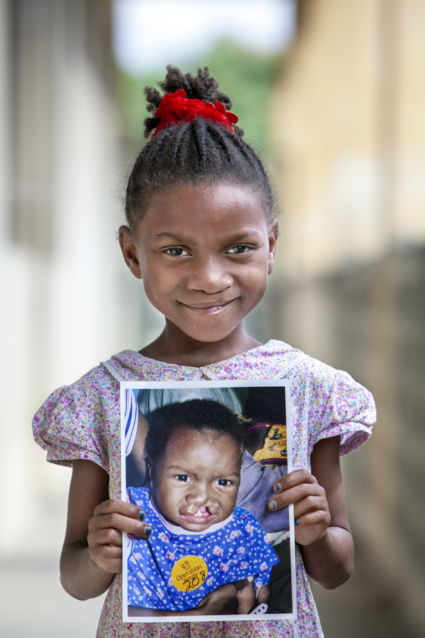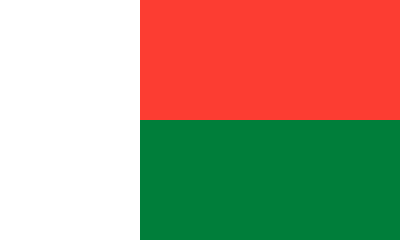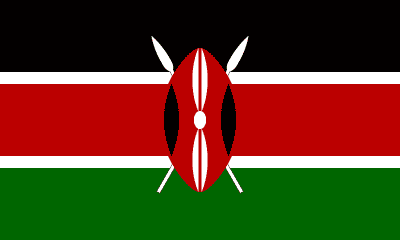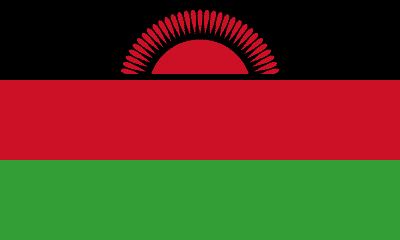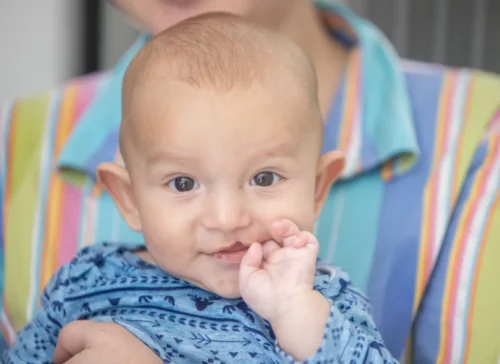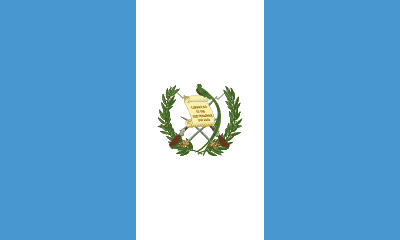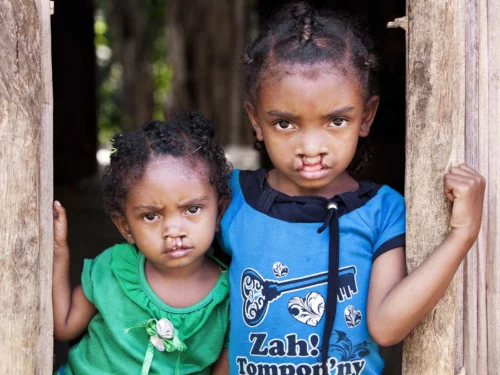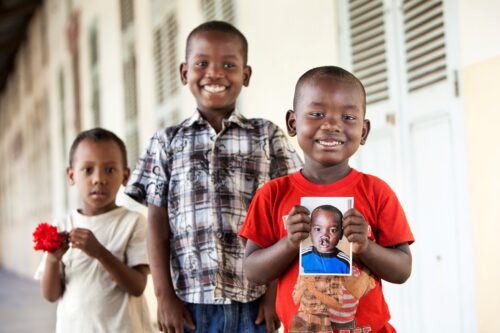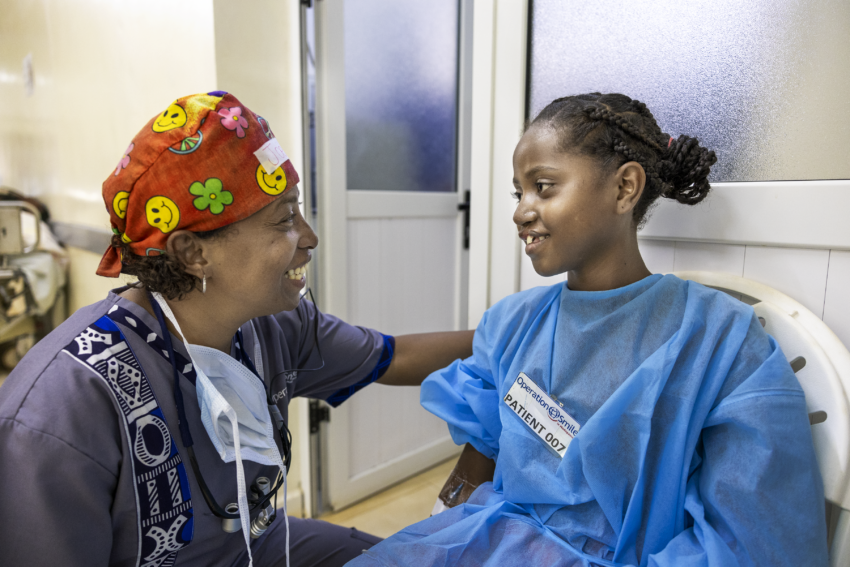
Operation Smile in Madagascar has been providing safe and high-quality treatment for 4,300 children affected by cleft conditions
THE NEED
1 in 2,000. In Madagascar, it is estimated that one child per 2,000 population is born with a cleft condition.
Financial burden. 80% of the population is at risk of impoverishing expenditure for surgical care, while nearly 60% faces catastrophic expenditure in case of surgical care. Out-of-pocket expenses often prevent people with cleft conditions from accessing care.
According to an Operation Smile survey, 97% of patients arriving at Operation Smile programs live below the poverty line and 99% have no health insurance. Operation Smile’s survey also revealed that 87% of patients arriving at Operation Smile programs in Madagascar could not have undergone surgery without the support of Operation Smile.
Shortfall of health workers. At the national level, there is only one specialist surgical worker per 100,000 people, which falls short of the Lancet Commission’s minimum target of 20 providers per 100,000 population. Madagascar faces a critical shortage of medical providers in rural areas, with many doctors migrating to urban centers where they get better-paying jobs.
Limited capacity for safe surgery. The Lancet Commission proposed that, to meet populations’ needs, countries should achieve 5,000 surgical procedures per 100,000 population. In Madagascar, doctors perform just 163 surgical procedures per 100,000 population.
The backlog of patients in need of surgery is exacerbated by the lack of critical infrastructure. Madagascar has just 0.2 hospital beds per 1,000 people, while the world average is 2.8 beds.
2-hour access to safe surgery. The Lancet Commission on Global Surgery proposed that at least 80% of a country’s population should be within two hours of a facility with essential surgery and anesthetic services. In Madagascar, only half of patients arriving at Operation Smile programs can access a surgical facility within two hours. Environmental factors such as floods and droughts create additional barriers for people seeking care.
Barriers to education and employment. In Madagascar, 32% of patients arriving at Operation Smile programs said that their condition limited their school attendance, while 30% said that their school performance is impacted by their condition. Additionally, 38% of caretakers stay home with their children, creating an additional financial strain for families.
OUR FORMULA FOR TRANSFORMATION
Operation Smile’s formula for transformational impact combines care delivery & capacity-building.
Education programs are at the center of Operation Smile’s strategy to increase access to surgery closer to the patient’s home.
Each surgical program brings together providers from all over the world for a unique opportunity to share knowledge and innovate. This type of bi-directional learning is essential to redistributing knowledge between providers and building capacity in the areas of greatest need.
Our work in health infrastructure & equipment addresses structural barriers to care and helps build robust health systems. Operation Smile’s research & innovation efforts inform all aspects of our decision-making and allow us to have a comprehensive understanding of the impact our programs have on patients.
HUB & SPOKES
To ensure that every child has access to care close to home, we equip the providers within our patients’ communities with skills and resources to deliver high quality care. We build the needed capacity by harnessing the talent and resources that exist within the country, usually in the bigger cities, the hubs, to train providers in under-resourced areas, the spokes, where most patients lack access to care.
Madagascar’s hub is based in the largest hospital in the country, CHU-JRA (Centre Hospitalier Universitaire Joseph Ravoahangy Andrianavalona). CHU-JRA, located in Madagascar’s capital of Antananarivo, serves as the country’s top referral hospital.
Operation Smile provides care at our hospital partner CHRR (Centre Hospitalier De Reference Regionale). Located in Antsirabe, CHRR serves a direct catchment area of over 200,000 people and is a referral hospital for an additional two million people in the region.
Operation Smile also provides care at hospital partners CHUAT in Tamatave and CHU-PZAGA in Mahajanga.
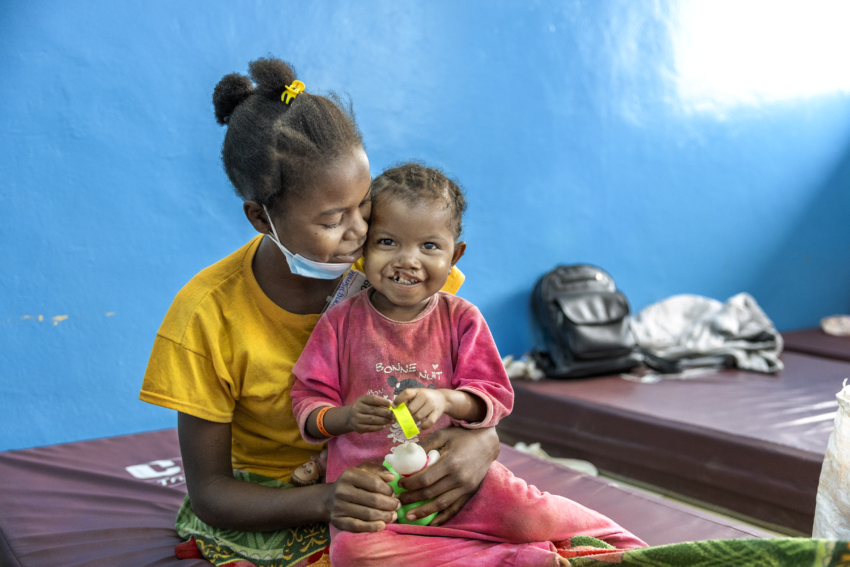
During Fiscal Year July 2024-June 2025, Operation Smile has committed to invest $1.4 million to perform life-changing surgery for 410 patients and provide training for approx. 360 health workers.
Over the course of the next five years, Operation Smile will provide surgery for around 3,200 patients and deliver comprehensive cleft care consultations for approx. 4,880 patients.
Cleft Care Programs
Operation Smile projects to provide surgical care for 410 patients. We will expand our comprehensive cleft care model to provide multidisciplinary services to patients before and after cleft surgery. Operation Smile will deliver consultations in oral health (100 patients), nutrition (210 patients), psychosocial care (~500 patients) and speech therapy (60 patients).
Education
Operation Smile aims to provide specialty training for around 360 health workers in Madagascar. Operation Smile will partner with the Federation of Societies of Anesthesiologists (WFSA) to improve access to training in anesthesia. Operation Smile will also train surgeons, nurses, biomedical technicians, psychosocial specialists, speech therapists and oral health professionals.
Health Policy & Advocacy
Operation Smile will work closely with NGOs to create a coalition for better coordination in advocacy activities. We will also assist the Ministry of Health (MoH) and the Medical School in training new providers in partnership with international universities and organizations. Operation Smile will support the MoH and the Medical School in creating an essential surgery and anesthesia fellowship to increase access to specialized medical training in the country.
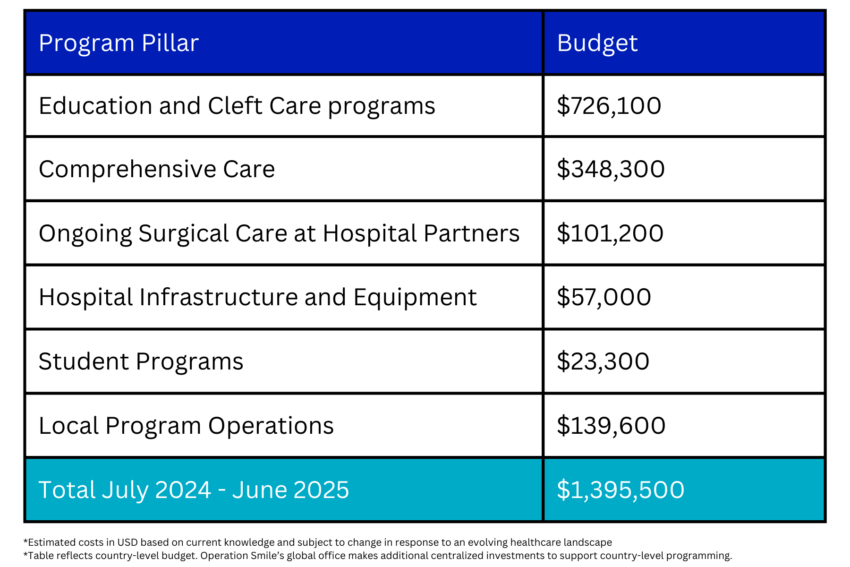

FIVE-YEAR VISION
In the next five years, Operation Smile will train local health workers to increase access to quality and safe care closer to the patient’s home. We will build four cleft-competent surgical teams, with two teams in Antananarivo, one team in Tamatave, and one team in Antsirabe. This will significantly reduce the country’s reliance on international volunteers.
Empowering medical providers with knowledge and skills will allow us to treat more patients. Operation Smile will provide surgery for around 3,200 patients and deliver comprehensive cleft care consultations for approx. 4,880 patients in the next five years.
Over the next five years, Operation Smile will advocate for creating and implementing a National Cleft Care Protocol in Madagascar to promote cleft care as a strategic priority in public health. Operation Smile will address cultural barriers to seeking care and increase knowledge about cleft conditions by conducting awareness campaigns, organizing patient advocacy programs and promoting the National Registry of cleft conditions.
Operation Smile will partner with local and international universities to conduct cleft-related research and engage in the collection of data to improve the quality of care.
